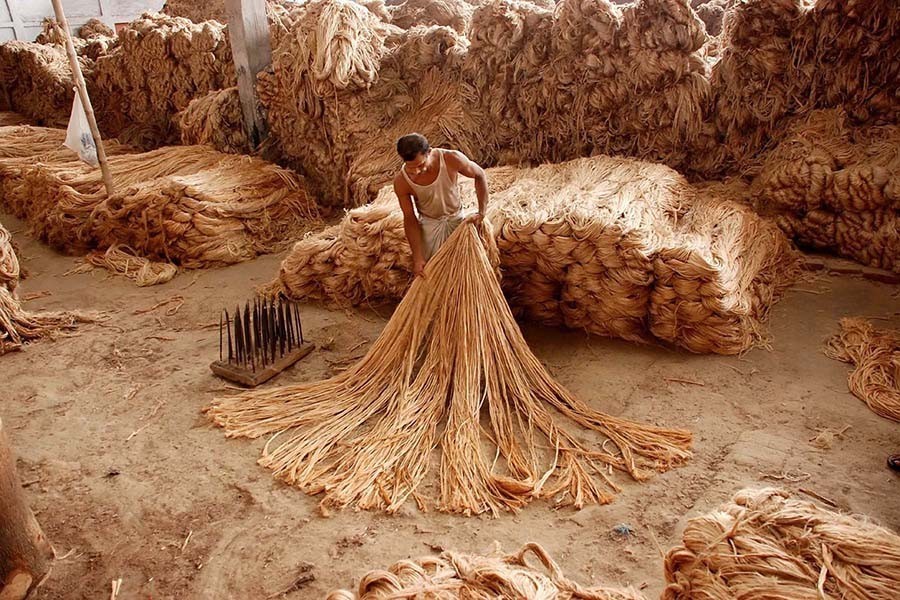The reason behind the government's formal declaration of jute as an 'agricultural product' is quite understandable. A plant fibre, its industrial use and diversification of products should have long given this recognition. As the Prime Minister has said, like other agricultural products, all kinds of incentives must be given to farmers who cultivate jute. The Textiles and Jute Minister has thanked the PM for taking up the case for jute traders and producers, entrepreneurs of jute goods and other stakeholders. Overcoming the uncertainty of jute's future, its traders and farmers can now look to the future in a confident manner. The recent government declaration is expected to streamline the jute sector from production to its industrial use to export.
In rejuvenating the nearly moribund jute sector, state financial support i.e. cash incentives and other facilities appear to have become a sine qua non. Given the stimulus in the form of 5.0 to 25 per cent cash incentives, the country's export of jute goods is expected to get a new lease of life. Jute was once recognised as the 'golden fibre' of the country. In course of time, fall in its demand in the overseas market led it to fall in bad times. Non-traditional products tried to replace it.
Coming to jute farming, the most important of the whole segment, the government is expected to provide these farmers with agricultural inputs like urea, TSP and MOP fertilisers and Ufshi variety of seeds in order to facilitate jute cultivation. In the yesteryear, irregular and inadequate supplies of these inputs would take a heavy toll on jute growing in the country. A common pattern of jute cultivation once comprised low yield of jute plants, unavailability of sufficient water to ret raw jute and poor demand. The revival of jute took place only in the 1980s and the 90s. After attaining the status of a reinvigorated crop for some time, it fizzled out once again. It now faced the heat from the other jute producing countries --- India being the number one.
But in the context of climate change and a worldwide campaign against artificial fibres and polythene and plastic bags and other materials, the biodegradable environmentally friendly fibre enjoys strong backing of the global environmental activists. Plastic products' aggression on the market continues throughout the world. In such a critical time, Bangladesh, the former largest grower of jute in the world, weigh in with its previous reputation. The jute-made biodegradable products require state-of-the-art technology and skill in order to produce exportable items. The country has already begun attracting the urban people to its locally produced jute products comprising bags, sleek decoration items and many other household goods.
With the widening of its jute products' export basket, the country can find itself poised to become a dominant player in this field. Now that jute has been given the recognition of an 'agricultural product', the country's future strategy should be to exploit its competitive edge in terms of its environmental benefit. If properly planned for diversification of jute-based products, their demand will only increase in the international market.


